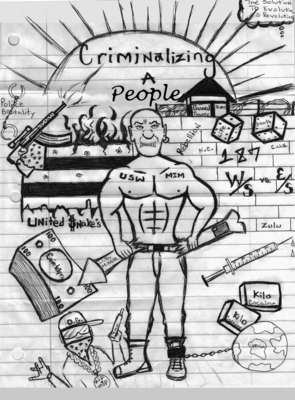
Criticism and Self-Criticism in Revolutionary Practice
Criticism in the positive usage is the examination, analysis, and evaluation of the comparative worth of one’s acts, practices, policies and/or ideas by others. Self-criticism is, of course, the same principles applied to oneself, but also refers to the organizational practice of critically examining and re-examining its own policies and/or the policies and practices of its members. Criticism and self-criticism are wholly necessary to human progress.
Criticism in its positive usage corrects mistakes in practices and of thought, and resolves differences among individuals and makes for smooth-running, well-functioning organizations. We should put forth the slogan “Unity-Criticism-Unity” to show how individuals come together and unite under principles, but in the actual working out of these principles differences arise for various reasons, which work against the accomplishments of the declared ends, and against cohesion of the organization. When these differences arise there must be criticism in which those with differences interpenetrate, modify one another, and form a new more perfect unity on the basis of having worked out contradictions that were inherent in the old unity.
Cause of Error
The differences which arise that disrupt unity can generally be found to have their basis in these categories of human error:
- Opportunism; opportunism is defined as that tendency for an individual or individuals to make a decision or commit an act that is favorable to his/her own self-aggrandizement and at the expense of the collective or the movement as a whole. Opportunism stems from selfishness. When opportunism arises, either in an individual or in an organization it is to be severely criticized, and if necessary, the individual or individuals should be expelled from the organization or ostracized from the movement.
- Subjectivism: the second type of error that disrupts unity and impairs revolutionary progress may be found in the general category called “subjectivism.” Progress is always our purpose, but subjectivism can be distinguished from opportunism often only by the merest of hairlines. It generally has to do with personality flaws; One makes a decision or commits an act that is based on one’s personal feelings, desires, resentments, jealousies, prejudices, etc. Such subjectivism may possibly stem from any number of sources: child trauma, subliminal conditioning, religious superstitions, etc. When such subjectivism pops up to impede the functioning of the individual or the progress of the organization, it is imperative that it be dealt with. The consciousness of many must necessarily be stripped of the old pernicious ideas and values imposed by the bourgeois culture. However, those traits and personal idiosyncrasies which are not particularly harmful to the individual or the cause, but are largely a matter of style, should not needlessly be criticized.
MIM(Prisons) responds: We refer comrades to Mao’s essays On Contradiction and Combat Liberalism for more on the importance of fighting opportunism and building unity through the resolution of contradictions.








